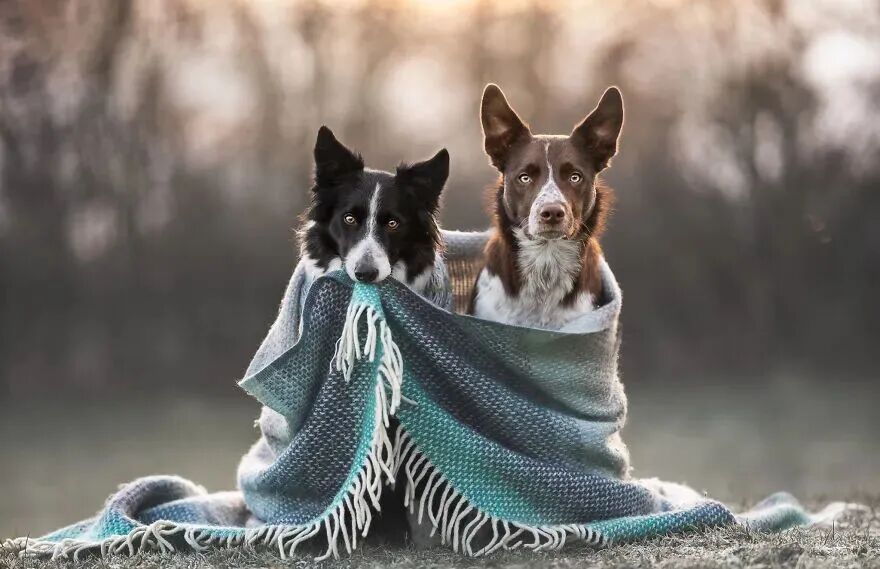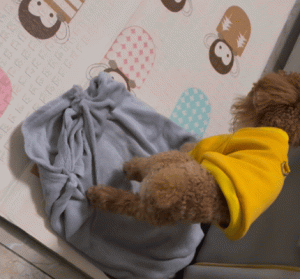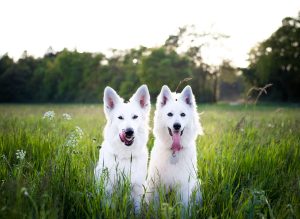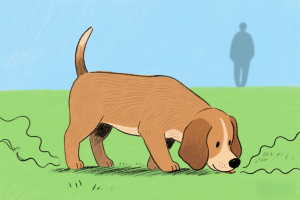Dogs Can’t Say “I Love You,” But They’re Truly Afraid of Losing You: 4 Behaviors to Look Out For.Dogs can’t say “I love you,” but they are genuinely afraid of losing you. They fear you might leave, that you could be upset with them, or that one day, you might stop loving them. What you may think of as them being playful, mischievous, or clingy, is actually their way of showing you, in the most cautious and loving way possible, “I’m really scared of never seeing you again.”If your dog doesn’t want to lose you, it will show these 4 behaviors. Don’t overlook them, and don’t misunderstand.
-
When You Pack, They’re More Nervous Than Anyone Else
The moment you change clothes, pull out your suitcase, or put on your shoes, your dog immediately gets tense, circling around you. It doesn’t bark, but it watches your every move. When you bend down, it lies down by your feet, blocking your path with its body. It’s not playing; it’s trying to physically stop you from leaving. Your dog doesn’t know whether you’re leaving for a few minutes or for months. It just instinctively thinks, “Is there anything I can do to keep you here?” That panic and anxiety is hidden in every step you take. If you pet it before you leave and say, “I’ll be back,” your dog will calm down significantly. It doesn’t need you to stay; it just wants to know—you will come back.
-
When You Ignore It, It Won’t Leave
Sometimes when you’re feeling down and don’t want to talk, you might think your dog will stay out of your way, but instead, you find it sitting right next to you. It’s not bothering you; it’s quietly sitting beside you, close enough for you to know it’s there but not so close that it’s annoying. It’s offering a very deep emotional response. When you’re silent, it understands. When you’re distant, it doesn’t get angry. Your dog is afraid you’ll push it away, but more than that, it’s afraid that you no longer need it. It stays because it doesn’t want you to be alone. It’s telling you, “I don’t know how to help, but I won’t leave.”
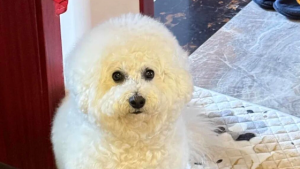
-
It Needs to Sleep Close to You
By your feet, your arm, your shoulder, or your side… Have you noticed? Your dog always sleeps close to you. It’s not about habit or seeking warmth; it’s about confirming you’re really there. And it sleeps lightly—if you move, it wakes up immediately; if you turn over, it snuggles closer. It’s not afraid that you’ll run away; it just wants to stay with you a little longer. It knows that when you wake up, tomorrow may not bring the same certainty that you’ll still be there. So tonight, it doesn’t want to drift too far away. The careful way it gets close, then gently closes its eyes, looks just like someone who secretly loves you but can’t confess.
-
The “Jump + Circle + Gaze” When You Return
You’re gone for just a few hours, but your dog has been waiting for you at the door all that time. When it hears your keys, it’s more excited than anyone. The moment the door opens, it jumps on you, licks your hands, spins in circles, its eyes shining like the brightest star in the night sky. You’re just coming home, but to your dog, it feels like a miracle. This isn’t a “Welcome back”; it’s a “Thank goodness you didn’t leave.” Your dog is terrified of you leaving, scared you might not come back. Your hug, your “I’m home,” is the happiest moment of its day. You might think, “It’s just a short trip,” but your dog doesn’t know time—it only knows that every second you’re gone, it’s wondering if you’ll come back.
Your Dog Loves You Without Words, But Every Action Speaks Volumes.Your dog may not express its love in sweet words, but every movement it makes carries a deep sense of dependence and reluctance to part. The more afraid it is of losing you, the quieter it becomes. The more it cares about you, the less it demands attention. It spends its life doing one thing: “You are my whole world, please don’t leave.” So, please don’t ignore its expressions just because it can’t speak. Don’t let it wait in worry, loving you in silence and fear. Its life may be short, but it’s willing to give all of it to you.May you understand its “little gestures,” and may you respond with these words: “Don’t worry, I won’t leave you.”

